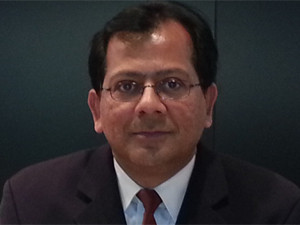
South Africa's local governments and major cities are well positioned to be the early leaders of Internet of things/Internet of everything technologies, says Huawei.
Ajay Gupta, director, Global Product Marketing, Enterprise Business Group at Huawei, says a top-of-mind topic at this year's CeBIT international ICT trade show in Hannover, Germany, was smart cities.
Internet of things (IOT) and Internet of everything (IOX) technologies are key to achieving the smart cities vision.
"The potential for IOT/IOX applications in making cities smarter is endless," he says. "They can improve road safety and traffic management, help address energy and public safety challenges, waste management and health services delivery, for example."
Gupta says Huawei, with a broad portfolio of IOT and related solutions, including LTE technologies, is also working on 5G technologies to quadruple some of the mobile connectivity speeds, and is developing an IOT framework to connect all sensors under a common architecture. Taking a 'joint innovation and win-win collaboration' approach, Huawei is working with private and public sector organisations around the world to use connected, advanced technologies to improve public service delivery, efficiency and productivity.
"Huawei already has all the pieces, and we are working with several cities in Europe on smarter cities/connected cities solutions. The challenges facing cities in South Africa are not that different from those facing cities in Europe. So South African cities are in a perfect position to bring to this country the same, validated smart cities solutions now in use in Europe," he says.
Gupta says because IOT/IOX technologies are new, enterprises have yet to identify a clear-cut business case for major investment in them. "Therefore, I expect to see cities and local government leading adoption, followed by consumers, with enterprises last," he says.
"This is because the benefits for cities are already clear. IOT/IOX technologies can immediately and visibly address the challenges cities face, even though a financial return may be harder to measure. Consider, for example, using IOT/IOX to direct motorists to available parking spots in order to reduce the amount of traffic simply circling looking for parking in peak hours; or using sensors to identify traffic congestion and change the pattern of traffic lights to improve the flow of traffic. Once cities have adopted IOT/IOX technologies successfully in one area, they will typically move to bring the technologies into other spheres, so moving towards becoming a smarter city."
Share